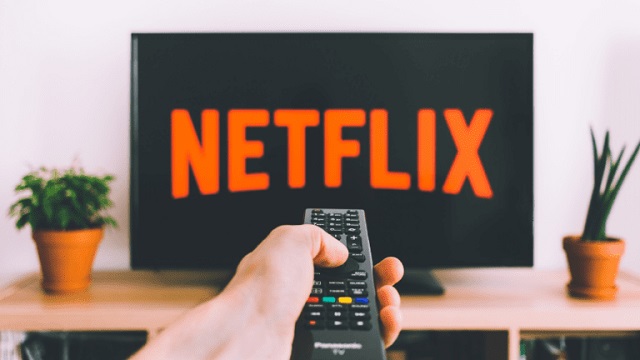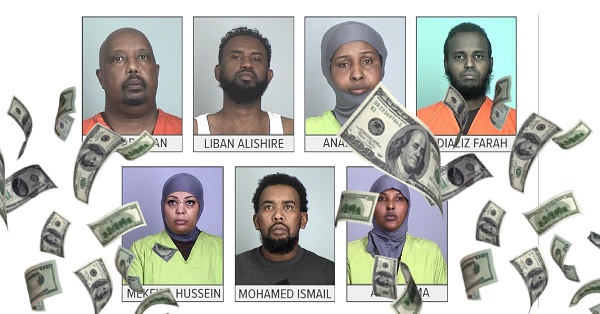Business
Will U.S. streaming companies play ball with the CRTC?: Peter Menzies

From the MacDonald Laurier Institute
By Peter Menzies
Domestic streamers have to live with the rules the CRTC comes up with, not so when it comes to global streamers
The fundamental weakness in Canada’s Online Streaming Act will be exposed for all to see on Nov. 20, when the Canadian Radio-television and Telecommunications Commission (CRTC) comes face-to-face with American streaming companies.
For the first time, the regulator will be dealing with companies that, if they don’t like the rules and the financial burden the CRTC imposes, are free to leave the country.
To be clear, neither Netflix, Disney+ nor any other company has yet suggested they are prepared to quit Canada. There have been no threats to do anything similar to what Meta did and Google might – stop carrying news – in response to the Online News Act. But there is nothing that compels foreign companies from continuing here if CRTC decisions make it no longer sensible for them to do so.
That shapes the conversation in a way that the commission, which commences a three-week-long hearing Nov. 20 involving 127 intervenors, isn’t accustomed to. Throughout its history, the primary players in CRTC procedures have always been captives of “the system” – domestic companies that depend for their existence on a commission license or rely upon the regulator’s decisions for their sustenance. They may not like the rules the CRTC comes up with, but they have to live with them.
Not so when it comes to global streamers that, as it turns out, are global.
Netflix’s base here is robust – 6.7 million subscribers – but that is just 10 per cent of its U.S. audience and only 2.8 per cent of its global subscriber base. According to its submission to the CRTC, it has already invested $3.5-billion in film and TV production since launching here in 2010 – roughly equivalent to the Canada Media Fund’s spend over the same period. And, it claims, people are 1.8 times more likely to view a Canadian production on Netflix than on TV. Let that sink in.
Disney+ makes similar arguments. It has 4.4 million Canadian subscribers out of a global total of about 147 million (down significantly this year). It points out that it has invested $1.5-billion in Canada, which is one of its top four production markets. As it gently states in its submission to the CRTC: “We encourage the commission to adopt a modernized contribution framework and a revised, modern definition of a ‘Canadian program’ that provide sufficient incentives for global producers and foreign online undertakings to continue to bring large-scale productions to, and make capital investments in, Canada.”
Large domestic companies that have been forced by regulation to contribute to the production and airing of certified Canadian content, meanwhile, argue for their “burden” in that regard to be reduced and shifted onto the backs of foreign companies.
In its submission, BCE Inc., which has a current profit margin of 21.2 per cent, describes the broadcasting system as in crisis, accuses streamers of having “contributed precious little to the Canadian system” and calls for its contributions to be reduced from 30 per cent to 20 per cent of the media division’s revenue – a figure it believes should be applied to all offshore streamers with more than $50-million in Canadian revenue.
BCE Inc. goes on to argue that if the commission takes its advice and forces the streamers to pay 20 per cent of their revenue directly into Canadian content funds, an additional $457-million – growing to $678-million by 2026 – will pour into the pockets of ACTRA, the Writers Guild and others involved in the creation of certified Canadian TV and film content.
And that, right there, is where Netflix, with a profit margin of 13 per cent clears its throat. Politely but firmly, it says the CRTC appears to have already made up its mind that streamers should be paying into funds and “submits that this is not an appropriate starting point.”
The decade prior to the introduction of the Online Streaming Act was by far the most prosperous in the history of the Canadian film and television industry, including in terms of Canadian content production.
Most of that growth took place beyond the reach of the CRTC, which was in charge of an increasingly irrelevant system upon which many legacy companies had grown dependent. But instead of fostering what was working, the government chose to sustain what wasn’t.
So now, as with the Online News Act, it’s playing at a table where it no longer holds all the cards.
Peter Menzies is a senior fellow with the Macdonald-Laurier Institute, a former publisher of the Calgary Herald and a previous vice-chair of the Canadian Radio-television and Telecommunications Commission (CRTC).
Business
Largest fraud in US history? Independent Journalist visits numerous daycare centres with no children, revealing massive scam

A young journalist has uncovered perhaps the largest fraud scheme in US history.
He certainly isn’t a polished reporter with many years of experience, but 23 year old independent journalist Nick Shirley seems to be getting the job done. Shirley has released an incredible video which appears to outline fraud after fraud after fraud in what appears to be a massive taxpayer funded scheme involving up to $9 Billion Dollars.
In one day of traveling around Minneapolis-St. Paul, Shirley appears to uncover over $100 million in fraudulent operations.
🚨 Here is the full 42 minutes of my crew and I exposing Minnesota fraud, this might be my most important work yet. We uncovered over $110,000,000 in ONE day. Like it and share it around like wildfire! Its time to hold these corrupt politicians and fraudsters accountable
We ALL… pic.twitter.com/E3Penx2o7a
— Nick shirley (@nickshirleyy) December 26, 2025
Business
“Magnitude cannot be overstated”: Minnesota aid scam may reach $9 billion

Federal prosecutors say Minnesota’s exploding social-services fraud scandal may now rival nearly the entire economy of Somalia, with as much as $9 billion allegedly stolen from taxpayer-funded programs in what authorities describe as industrial-scale abuse that unfolded largely under the watch of Democrat Gov. Tim Walz. The staggering new estimate is almost nine times higher than the roughly $1 billion figure previously suspected and amounts to about half of the $18 billion in federal funds routed through Minnesota-run social-services programs since 2018, according to prosecutors. “The magnitude cannot be overstated,” First Assistant U.S. Attorney Joe Thompson said Thursday, stressing that investigators are still uncovering massive schemes. “This is not a handful of bad actors. It’s staggering, industrial-scale fraud. Every day we look under a rock and find another $50 million fraud operation.”
Authorities say the alleged theft went far beyond routine overbilling. Dozens of defendants — the vast majority tied to Minnesota’s Somali community — are accused of creating sham businesses and nonprofits that claimed to provide housing assistance, food aid, or health-care services that never existed, then billing state programs backed by federal dollars. Thompson said the opportunity became so lucrative it attracted what he called “fraud tourism,” with out-of-state operators traveling to Minnesota to cash in. Charges announced Thursday against six more people bring the total number of defendants to 92.
BREAKING: First Assistant U.S. Attorney Joe Thompson revealed that 14 state Medicaid programs have cost Minnesota $18 billion since 2018, including more than $3.5 billion in 2024 alone.
Thompson stated, "Now, I'm sure everyone is wondering how much of this $18 billion was… pic.twitter.com/hCNDBuCTYH
— FOX 9 (@FOX9) December 18, 2025
Among the newly charged are Anthony Waddell Jefferson, 37, and Lester Brown, 53, who prosecutors say traveled from Philadelphia to Minnesota after spotting what they believed was easy money in the state’s housing assistance system. The pair allegedly embedded themselves in shelters and affordable-housing networks to pose as legitimate providers, then recruited relatives and associates to fabricate client notes. Prosecutors say they submitted about $3.5 million in false claims to the state’s Housing Stability Services Program for roughly 230 supposed clients.
Other cases show how deeply the alleged fraud penetrated Minnesota’s health-care programs. Abdinajib Hassan Yussuf, 27, is accused of setting up a bogus autism therapy nonprofit that paid parents to enroll children regardless of diagnosis, then billed the state for services never delivered, netting roughly $6 million. Another defendant, Asha Farhan Hassan, 28, allegedly participated in a separate autism scheme that generated $14 million in fraudulent reimbursements, while also pocketing nearly $500,000 through the notorious Feeding Our Future food-aid scandal. “Roughly two dozen Feeding Our Future defendants were getting money from autism clinics,” Thompson said. “That’s how we learned about the autism fraud.”
The broader scandal began to unravel in 2022 when Feeding Our Future collapsed under federal investigation, but prosecutors say only in recent months has the true scope of the alleged theft come into focus. Investigators allege large sums were wired overseas or spent on luxury vehicles and other high-end purchases. The revelations have fueled political fallout in Minnesota and prompted renewed federal scrutiny of immigration-linked fraud as well as criticism of state oversight failures. Walz, who is seeking re-election in 2026 after serving as Kamala Harris’ running mate in 2024, defended his administration Thursday, saying, “We will not tolerate fraud, and we will continue to work with federal partners to ensure fraud is stopped and fraudsters are caught.” Prosecutors, however, made clear the investigation is far from finished — and warned the final tally could climb even higher.
-

 International1 day ago
International1 day agoOttawa is still dodging the China interference threat
-

 Business1 day ago
Business1 day agoThere’s No Bias at CBC News, You Say? Well, OK…
-

 Automotive1 day ago
Automotive1 day agoCanada’s EV gamble is starting to backfire
-

 International1 day ago
International1 day ago2025: The Year The Narrative Changed
-

 Alberta2 days ago
Alberta2 days agoAlberta project would be “the biggest carbon capture and storage project in the world”
-

 Daily Caller2 days ago
Daily Caller2 days agoWhile Western Nations Cling to Energy Transition, Pragmatic Nations Produce Energy and Wealth
-

 Business2 days ago
Business2 days agoResidents in economically free states reap the rewards
-

 International2 days ago
International2 days agoNo peace on earth for ISIS: Trump orders Christmas strikes after Christian massacres






